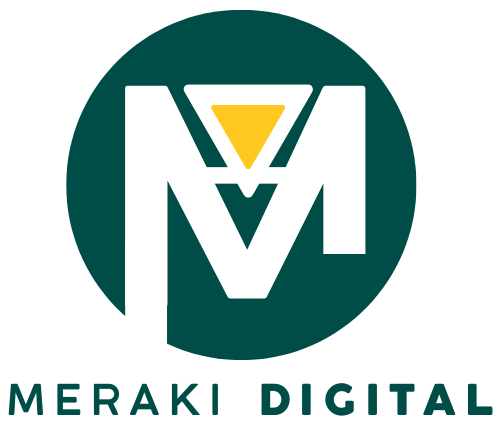8 Easy & Actionable Digital Marketing Tips
For Small Business Owners
Not sure where to start with digital marketing for your new small business? We know that digital marketing and all that it includes can get overwhelming sometimes so we’re here to share some easy and actionable tips to get you on your way to marketing your business.
If you’re not a digital marketer then hearing terms like SEO, SEM, Google Analytics, etc., etc. can seem very complex and make it hard to know where to start but let’s break it down and make it simple with a few questions.
- Who is your ideal customer?
- What is your customer in need of?
- How are you going to make your customer’s life better with your product or service?
- Who is competing for your customer’s attention with a similar offering?
- How can you be in the right digital space at the right time and say the right thing?
Once you start to put your customer and your value proposition at the forefront of every digital marketing thing you do, the process becomes a lot easier to navigate. The rest of it is just about what tools you’re using to talk to your customers.
So let’s get into it and set up the basics for your digital marketing.
Build a customer persona
Your customer persona is a fictional character who represents a segment of your audience with the relevant demographics, interests, habits, pain points, and so on. You may have two or more depending on your product/service offering. Whenever you plan a campaign or any form of messaging, you should always create it as though you’re creating for your customer persona and think about why it will be of value to them.
Here are some free tools to start building your customer persona.
Now you have a customer persona, what value are you adding to their lives?
What additional value are you adding to your audience’s life? Why would your customer choose to engage with you over someone else? Again, think about your customer persona and think about what pain points they have and how your business will resolve them. Does your business have a unique approach or do you have a new and innovative way of doing something? Find your unique value proposition and promote it through all your digital marketing messaging.
Check out your competitors
Who’s fighting for your customer’s attention? Research 3-4 competitors in your landscape and look at their websites, their social media, their newsletter, and any other digital marketing platforms or activity. Do a SWOT analysis and write down what you see as their strengths, weaknesses, opportunities, and threats are. Dig deeper and look at how their audiences are engaging and what they’re saying on social media platforms and reviews. Once you have better insight into your competitors, you’ll have more of an understanding of your market, what’s working, and plan out your digital marketing approach.
Make use of the free tools available to you.
- Set up your social media accounts. If you’re wondering which is best? Do you have to be on all of the platforms? Like always, think about your customer persona and think about where they spend their time online. Take a look at some social media usage and demographics statistics here.
- Create a Google Business Profile. A Google Business Profile account is a free business listing from Google that appears on the right of Google’s search page when people type your business name. This listing includes details and photos of your business. In addition to this, you can add any posts and offers to this listing. This listing is seen at the very top of Google so it’s definitely something to make the most of!
Do you need a website?
The short answer is most likely, yes. While social media and directory listings are great, a website gives you a space where you have your brand message, value proposition, your offerings, customer case studies and testimonials, start building an email list and more, in the way that you want. Having a website helps you create a digital presence and means you will appear on search engine results. If you’re looking to build something quick and easy yourself, some user-friendly website platforms you can use are Wix, Squarespace, Weebly or LeadPages
Optimise your website and learn how people are using it.
Now you have your website up and running, think about some basic search engine optimisation techniques. What are some keywords you would use if you were searching for your service? Once you’ve figured out some keywords that would be relevant, validate your thinking by doing some research. Use a tool like Wordstream’s keyword tool to see how often people are typing these keywords. Find some that are highly searched and see if you can use them in your webpages in: page title, page descriptions, body copy, and image names. Remember, always do this in a way that’s natural, organic, and is written for a human (not a robot). If it doesn’t flow well, don’t use it – find keywords that are a better fit.
A lot of easy-to-use website builders like Wix have built-in analytics that shows visitors numbers, what pages are highly visited, and so on. Figure out if your website has these analytics and if you’re getting the data you require from it. We always recommend setting up a google analytics account as this will give a majority of data you’ll need going forward. Here’s how to set up Google Analytics and once you’re set-up, you will need to embed the code into the backend of your website. Struggling or not enough time to figure this out? Book in a call with us and we’ll help you 🙂
Who doesn’t love free things? Think about some giveaways
When you’re getting started, it’s always good to test out your product or service by offering it for free. You can be strategic about which product or service you choose to give out for free and also be strategic about who you give it out to. Give away your offering to a limited number of people in exchange for feedback to see how you can better your offering. Remember to always encourage testimonials and customer reviews (people can do this through your newly set-up Google Business Profile).
Join the community
See what Facebook groups or LinkedIn groups there are that are relevant to you and where your audience may spend time and join them. Research any partner website or directories you can be a part of. Don’t forget about any business you work closely with, to see if they would be happy to promote your offering on their digital platforms and you can do the same for them. Join existing online communities and become creating relationships so you can work with others to promote valuable information and offerings to audiences.
Ok, there’s a few simple tips to get you started. All businesses have their own plans and will have different things that work for them so don’t be scared to try new things (digital marketing is all about testing to see what works for your audience) and have fun with it!
Have questions about your digital marketing set-up?
Let’s chat. Book in a free no-obligation 30 minute call with us.

